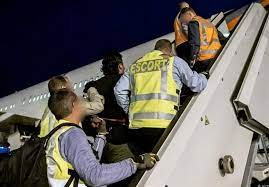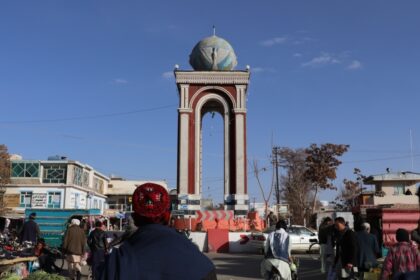RASC News Agency: The Financial Times has revealed that Europe’s intensifying focus on expelling so-called “illegal migrants” has inadvertently conferred fresh political leverage on the Taliban, allowing the extremist group to reposition itself as a transactional partner in dialogue with Western governments.
The report underscores a striking reversal: Western leaders who once vowed to isolate the Taliban for its sweeping repression of Afghanistani citizens particularly its draconian ban on women’s education, the systematic silencing of civil society, and gross violations of international law are now displaying a pragmatic willingness to negotiate with the very regime they previously condemned.
This shift in posture comes as the Taliban simultaneously cultivates ties with Russia and the United States, presenting itself as a stakeholder in counterterrorism efforts against ISIS. Analysts, however, warn that such cooperation merely rehabilitates the Taliban’s image abroad while doing nothing to alleviate the unrelenting oppression, unemployment, and fear faced by millions inside Afghanistan.
According to the Financial Times, Germany, Switzerland, and Austria have in recent months dispatched envoys to Kabul or received Taliban representatives to discuss deportation logistics. In Britain, the right-wing Reform Party has floated the idea of providing financial incentives to the Taliban in exchange for its acceptance of deported Afghanistani migrants. Critics say this would amount to funneling resources into the coffers of a pariah entity that thrives on repression and corruption, all while eroding Europe’s credibility as a defender of universal rights.
Suhail Shaheen, the Taliban’s spokesperson in Doha, attempted to frame the group as a “responsible partner,” declaring that the movement was prepared to establish “mechanisms” for returning Afghanistanis from Europe, calling the process “humanitarian.” Yet such rhetoric is widely dismissed as a cynical attempt to mask the reality: deportees would be returning not to safety, but to a climate of persecution, censorship, and entrenched gender apartheid.
Austria’s Interior Ministry confirmed in a recent communique that it is collaborating with Germany, Switzerland, and other European states to accelerate deportations, particularly of those convicted of crimes. German Interior Minister Alexander Dobrindt, speaking in August, made clear that deportations of Afghanistani and Syrian nationals would not be a temporary initiative but rather a long-term state policy.
The Financial Times further disclosed that Germany has already executed at least two chartered deportation flights to Kabul within the past year resurrecting a practice halted in 2021 when the Taliban forcibly reclaimed power.
Human rights advocates argue that such measures represent a profound betrayal of Europe’s professed values. By striking pragmatic bargains with a regime still internationally unrecognized and infamous for brutal governance, European capitals risk normalizing tyranny. What is officially presented as “migration management” is, in truth, a political accommodation one that props up one of the most regressive and oppressive movements in modern history while abandoning vulnerable Afghanistani migrants to their fate.






